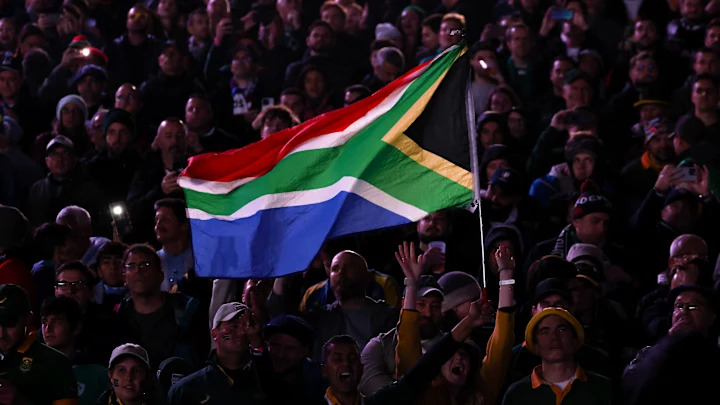South Africa is no stranger to passionate sports fans. Whether it’s rugby at Loftus Versfeld, cricket at Newlands, or soccer in Soweto, the country knows how to bring the energy. But in recent years, a new sporting culture has been on the rise—MMA fandom. From packed sports bars on fight nights to heated Twitter debates about UFC champions, South Africans are embracing mixed martial arts like never before.
So, what makes MMA fan culture in South Africa unique? Let’s take a closer look at how the sport has captured hearts, screens, and conversations across the nation.
The Rise of MMA Popularity in South Africa
MMA’s growth in South Africa didn’t happen overnight. The launch of EFC Africa in 2009 gave local fans a homegrown promotion to rally behind. Weekly fight nights, accessible ticket prices, and live broadcasts introduced thousands of South Africans to the thrill of MMA.
At the same time, the UFC’s global expansion meant fans could watch international stars like Anderson Silva, Georges St-Pierre, and Jon Jones on TV or streaming platforms. The combination of local talent and global superstars helped ignite interest across the country.
Now, with Dricus Du Plessis and Cameron Saaiman representing South Africa in the UFC, MMA isn’t just a niche sport—it’s part of mainstream sports culture.
Where South Africans Watch MMA
MMA fandom in South Africa thrives in both private and public spaces:
-
Sports Bars & Venues: Big cities like Johannesburg, Cape Town, and Durban host UFC watch parties at sports bars. Venues often stream pay-per-view cards, and the energy feels like a mini stadium.
-
At Home Streaming: With platforms like SuperSport and UFC Fight Pass, fans stream events late at night (thanks to time zone differences). For many, it’s become a ritual to stay up until sunrise on fight nights.
-
Social Media: Twitter and Instagram are buzzing during UFC cards, with South Africans sharing reactions, memes, and fight predictions in real time.
This shared viewing culture makes fight nights feel like national events, especially when a South African is on the card.
South African Fans and African Pride
One of the most powerful aspects of MMA fan culture in South Africa is the pride fans feel when African fighters succeed on the world stage.
When Kamaru Usman (Nigeria), Francis Ngannou (Cameroon), and Israel Adesanya (Nigeria/New Zealand) all held UFC titles, South Africans celebrated as if they were their own champions. It was a continental victory, proof that African talent belongs at the top.
Now, with Dricus Du Plessis climbing the ranks, the excitement has shifted closer to home. South African fans see him as not just a fighter, but a national symbol—someone capable of putting the country on the UFC map permanently.
The Fight Night Ritual
Ask any die-hard MMA fan in South Africa what fight night looks like, and you’ll hear a few common themes:
-
Late-Night Gatherings: Because of the time difference with the US, main cards usually start around 4–6 AM SA time. Hardcore fans set alarms or pull all-nighters to catch every bout.
-
Braais and Watch Parties: Some fans turn fight night into a social event, firing up the braai (BBQ), inviting friends, and making it a communal experience.
-
Prediction Debates: Before big fights, fans argue passionately about who’s going to win, breaking down striking styles, wrestling abilities, and fight records.
It’s not just about watching fights—it’s about creating memories and traditions.
Women and MMA Fandom
While combat sports have historically been male-dominated, MMA in South Africa has attracted a diverse fanbase. More women are not only watching UFC but also training in MMA gyms across the country. Fighters like Amanda Nunes and Valentina Shevchenko have inspired female fans to embrace the sport, both as spectators and participants.
This shift has helped MMA culture grow beyond stereotypes, making it more inclusive and family-friendly.
The Role of Local Promotions
EFC (Extreme Fighting Championship) deserves credit for shaping fan culture in South Africa. By hosting regular live events, they created opportunities for fans to experience MMA up close. For many, attending an EFC event was their first live combat sports experience.
The chants, walkouts, and electric atmosphere inside EFC arenas mirror what fans see in UFC broadcasts, helping them feel connected to the global MMA community.
Challenges of Being a South African MMA Fan
Being an MMA fan in South Africa comes with its quirks:
-
Time Zones: Staying up all night to watch UFC can be exhausting, especially for fans with work the next morning.
-
Access to Content: Pay-per-view events can be expensive, and not all fans can afford regular subscriptions.
-
Distance from Events: Since the UFC hasn’t hosted an event in South Africa yet, fans must travel abroad if they want to experience the Octagon live.
Despite these hurdles, the passion hasn’t wavered—if anything, it’s made the fan culture tighter and more resilient.
What Makes South African MMA Fans Unique
South African fans bring their own flavor to the sport. They’re vocal, loyal, and deeply proud when local fighters succeed. They also blend their national sporting traditions—like the braai, passionate chanting, and friendly rivalries—into their MMA culture.
It’s this fusion of global MMA excitement with South African energy that makes the fanbase so unique.
Final Thoughts
MMA fan culture in South Africa is more than just watching fights—it’s about pride, community, and connection. From late-night watch parties to the roar of the crowd at EFC events, fans have built a culture that is passionate, supportive, and distinctly South African.
With fighters like Du Plessis and Saaiman climbing the UFC ranks, the excitement is only growing. And if the UFC ever brings an event to Johannesburg or Cape Town? You can bet the atmosphere will rival any stadium in the world.
Until then, South African fans will keep doing what they do best: staying loyal, staying loud, and keeping the Octagon spirit alive.
Further Reading:


